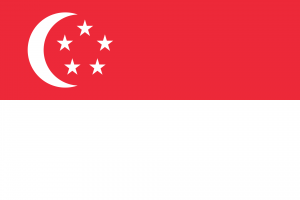Voters Hand Singapore Ruling Party a Solid Victory
Singapore’s ruling party romped to a strong election victory Friday and increased its share of the vote and seat tally as it brushed off an opposition challenge in the city-state’s most hotly contested polls. The People’s Action Party (PAP), which has ruled since independence in 1965, was always expected to win, but opposition parties, contesting in all seats for the first time, had hoped to gain enough votes to challenge its domination of politics.
« We are very grateful, we are very happy and at the same time, we are very humbled by the result, » Prime Minister Lee Hsien Loong told cheering supporters as results flowed in showing the extent of his party’s win. « Tomorrow will be better than today. »
The results showed the PAP won about 69.9 percent of the vote, above the 60.1 percent it won in the last election in 2011, which was its worst showing. In the last parliament it held 79 of 87 seats.
The ruling party won 83 of the 89 seats in an expanded parliament, while the opposition Workers’
Party ended up with six seats, fewer than the seven it held in the outgoing parliament.
Independence anniversary
The PAP had been hoping that a sense of patriotism inspired by this year’s 50th anniversary of independence and respect for the country’s independence leader, former Premier Lee Kuan Yew, who died in March, would work in its favor.
Lee, the father of the current prime minister, drew praise for his market-friendly policies but was criticized at home and abroad for his strict controls over the press, public protest and political opponents.
The election came as economic risks are in focus because of uncertainties stemming from China’s economic slowdown and wobbly markets.
DBS Bank, Singapore’s biggest lender, this week cut its economic growth forecast for Singapore to 1.8 percent, below the official forecast of 2 to 2.5 percent.
« In the end I would say there was this flight to safety, given the economic uncertainties, » said Eugene Tan, a political analyst and associate professor at Singapore Management University.
Global financial hub
Years of strong growth have turned the island nation into an international financial hub with spotless streets and malls, well-tended parks and living standards unmatched in Southeast Asia.
But that success and an influx of foreign workers have brought high property prices, crowded public transport and a widening wealth gap that have fueled resentment among many.
Eight opposition parties had hoped to take advantage of the grumbling, and big crowds had turned out for opposition rallies during the campaign, in which candidates focused on basic issues of jobs, health care and housing.
The PAP was forced to shift slightly to the left after its poor showing in 2011 to address an emboldened opposition’s calls for a better deal for middle- and lower-class voters.
The government launched a multibillion-dollar health care insurance program for the elderly, introduced cooling measures for the property market and curbed the flow of foreign workers.
The convincing victory Friday could lead to a government reassessment of such policies.
11/09 – http://www.voanews.com avec REUTERS
